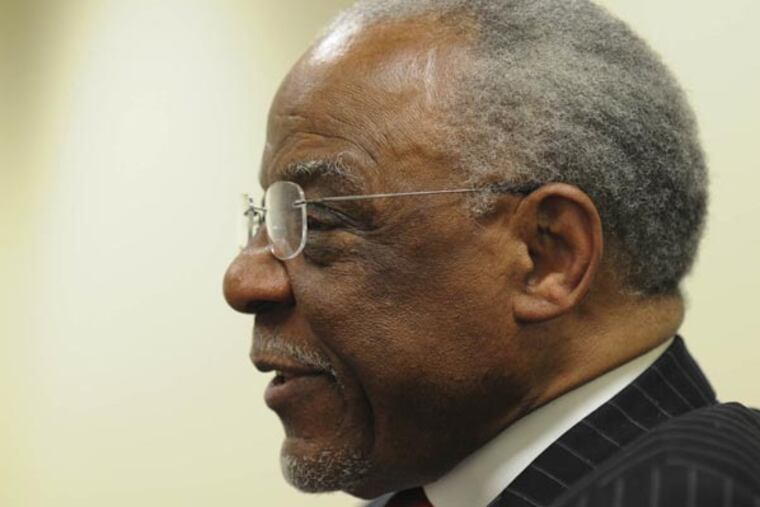W. Wilson Goode Sr., Philadelphia mayor
W. WILSON GOODE Sr. was just 16 months into his tenure as the city's first African-American mayor when the MOVE conflict reached its breaking point.

W. WILSON GOODE Sr. was just 16 months into his tenure as the city's first African-American mayor when the MOVE conflict reached its breaking point.
In the months prior, Goode had taken a position of "appeasement, non-confrontation and avoidance" with MOVE until enough pressure from the group's neighbors and the media pushed him to action, according to the MOVE Commission report.
Goode delegated the leadership and coordination of a plan to the police commissioner and the city's managing director while he monitored the events from City Hall, the commission said.
1985: Goode, who created the MOVE Commission by executive order, became one of its key witnesses and a target of its rebuke.
"The mayor failed to perform his responsibility as the city's chief executive by not actively participating in the preparation, review and oversight of the plan," the commission said.
In the wake of the disaster, Goode said the police commissioner and the managing director had done "outstanding jobs."
Quote: "It did not turn out as we had intended, but it was the right decision . . . It was a good plan, and it could have worked."
2010: Today, Goode views things differently.
"What we know is something went very wrong and something very bad happened," he said.
In his 1992 biography and later in court, Goode said one reason he didn't go to the scene on May 13, 1985, was that a community activist told him he might be shot by a rogue cop.
But in a recent interview, Goode, who is now a minister, said he didn't go because it wasn't his place to do so.
"It's not the position of the mayor to be at the scene of a police action," he said. "Just like it's not the role of a governor to be at a state police action or the president to be engaged at the scene of military conflict. It's just not something that happens."
He said that chief among the lessons learned from that day is: "Do not send police to do a job of negotiation or mediation when you need trained professionals at the site who, in fact, should do that."
Today, Goode, 71, who was elected to a second term as mayor after the MOVE conflict, spends his time working with Amachi, the nationally acclaimed program he founded that mentors the children of incarcerated parents.
Goode said MOVE enters his mind "every single day" and especially the three or four times a week he drives by Osage Avenue from his Overbrook Farms home to the First Baptist Church of Paschall, where he is associate pastor of administration.
Now an ordained minister, Goode said it's his relationship with God that has led him to the "happiest and most joyous point of my life."
"I've never had a problem in being judged on what happened that day," he said. "I've had a problem being judged only on what happened that day."
-Stephanie Farr